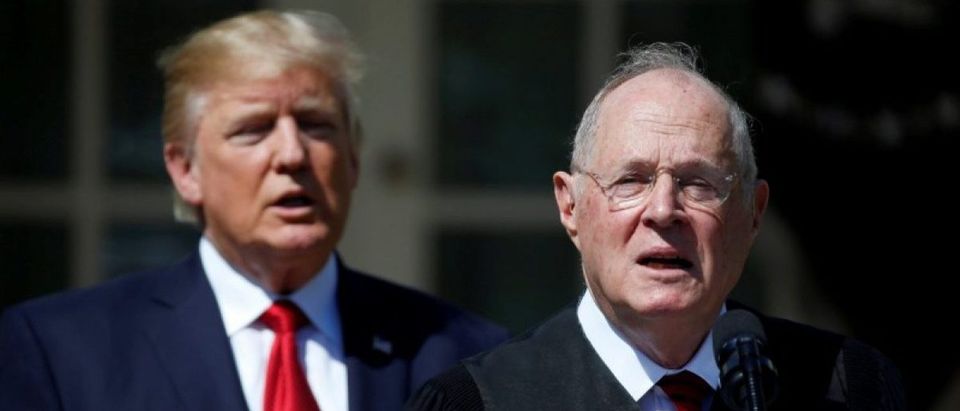Doug Jones’ victory in Tuesday’s special Senate election in Alabama may change Justice Anthony Kennedy’s calculus as he mulls retirement.
The race’s shock result has imperiled the Republican Senate majority ahead of the 2018 midterm elections, and with it the integrity of the judicial confirmation process, which appears nonfunctional under divided government.
Though the justice has recently told prospective clerks that he is considering retirement, the prospect of his departure seemed remote. In a political environment as volatile as this, his power as the Court’s swing vote is at its maximum. It seems counter intuitive that he would retire as his influence reaches its apex. What’s more, Kennedy has a high opinion of the Court’s capacity to bear moral clarity for a restless nation, making his continued service a matter of duty.
However true this may be, the justice is 81 and he is, after all, a Republican. Given his age and political inclinations, it is reasonable to assume he would like to retire and would prefer to do so under a Republican president. Jones’ stunning victory Tuesday betrayed the vulnerability of the GOP’s Senate majority, and the very real possibility that Democrats will seize control of the upper chamber in November 2018.
Should Democrats secure a Senate majority, it is highly unlikely that they would confirm any Trump judicial nominee. The speed with which Republicans have processed judicial candidates has been intensely frustrating for Democrats, and the GOP’s refusal to entertain Judge Merrick Garland’s 2016 nomination to the high court still elicits visceral outrage on the left. Where judges are concerned, the reservoir of good will has long since emptied.
As a general proposition, the pace of judicial confirmations has slowed when government is divided between the parties. The last Supreme Court nominee confirmed by an opposition Congress was Justice Clarence Thomas, who won confirmation from a Democratic Senate on a narrow 52-48 vote. The recent record on appeals court nominees is similarly mediocre. The Republican Senate confirmed just two of former President Barack Obama’s nominees in the final two years of his administration, one of whom was nominated to the U.S. Court of Appeals for the Federal Circuit, a specialized court which deals primarily in patent law and veterans claims.
And that is the more urgent point — all told, it seems unlikely that an opposition Congress will confirm a Supreme Court nominee for the foreseeable future.
Therefore, Kennedy’s options appear limited. Unless he retires at or before the end of the Court’s current term, there is a reasonable chance his successor will not be confirmed until a single party again controls the White House and the Senate. If Republicans retain their Senate majority in 2018, he will have some flexibility. But if Democrats prevail, it may be years — perhaps a decade — before one party controls both branches of government and another justice is confirmed.
Ever sphinx-like, there’s no way of knowing what exactly the justice is thinking. But we do know that he can count to 51 — and that he can’t count on a functional confirmation process for much longer.
Send tips to kevin@dailycallernewsfoundation.org.
The Daily Caller News Foundation is working hard to balance out the biased American media. For as little as $3, you can help us. Freedom of speech isn’t free. Make a one-time donation to support the quality, independent journalism of the Daily Caller News Foundation. We’re not dependent on commercial or political support and we do not accept any government funding.
All content created by the Daily Caller News Foundation, an independent and nonpartisan newswire service, is available without charge to any legitimate news publisher that can provide a large audience. All republished articles must include our logo, our reporter’s byline and their DCNF affiliation. For any questions about our guidelines or partnering with us, please contact licensing@dailycallernewsfoundation.org.


